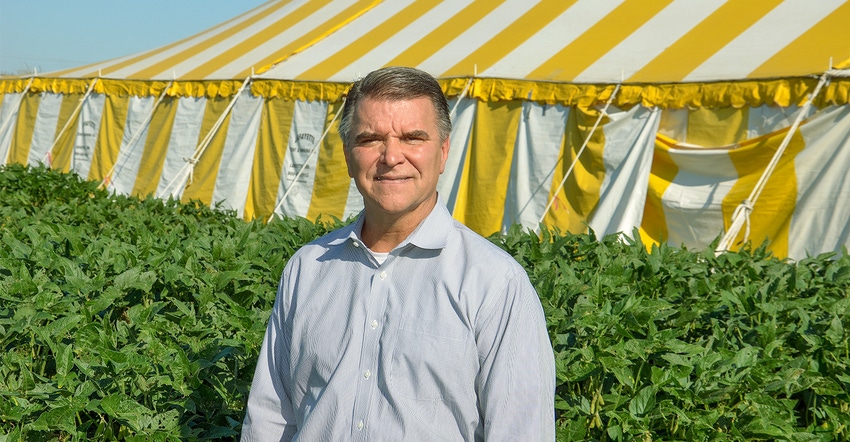
Chuck Conner addressed hundreds of farmers near Perrysville, Ind., recently. Conner is chief executive officer of the National Council of Farmer Cooperatives. He spoke at a field day of Ceres Solutions Cooperative, which serves farmers in Indiana and Michigan.
Farmers’ minds were on what issues related to agriculture might come before Congress in the next year. The Benton County, Ind., native shared his thoughts, and later answered specific questions in an exclusive interview with Farm Progress.
What should farmers watch for as Congress addresses tax reform? If we get true tax reform, many things could help farmers and small businesses, and it could be positive. At the same time, there are some things that might be negative for both farmer cooperatives and farmers. There is the possibility that farmers could benefit from changes in estate tax rules. There is a real need to get lower rates there to protect farm entities going forward. The bottom line is that farmers could benefit from tax reform — potentially.
What are the possible negative impacts to farmers with tax reform? One is the possibility that farmers could lose the ability to deduct interest expenses from their farm income. That could certainly have a negative impact. Another key issue that is huge for farmer co-ops, and in many cases for farmer co-op members, is whether or not the 199 tax deduction survives. It’s complicated, but it amounts to huge amounts of savings for co-ops. Depending on the co-op’s situation, many pass it along to farmer-members. This deduction needs to stay. If it goes away, it will have a very negative effect on both co-ops and many farmers in terms of tax bills. The bottom line is that there is potential for tax relief for farmers in tax reform, but there are also some potential pitfalls along the way.
What do you see in terms of immigration and agriculture? About 70% of the nonfamily labor force in agriculture today does not have the proper documentation to work here. We’re talking about some 1.2 million workers. What some leaders are talking about is creating some sort of legal status, not citizenship, which would allow them to stay. Many people in Congress realize that they are needed here. We would be hard-pressed to provide the food people are used to seeing in their local grocery store if all of these people suddenly went away.
What are your thoughts about trade with other countries? Some renegotiations are going on. We are certainly hopeful that the president can do what he says he can do when it comes to trade. Right now it’s sort of a wait-and-see situation. We definitely need trade, and we need to open markets for food and other agricultural goods.
One positive move should happen soon. Ted McKinney, currently director of the Indiana State Department of Agriculture, is nominated to head up a brand-new position in USDA in charge of trade. His job will be to go around the globe, sit down with foreign leaders, and entice them to buy more U.S. farm products.
Editor’s note: This is the second part of Farm Progress' interview with Connor. The first half ran yesterday.
About the Author(s)
You May Also Like




